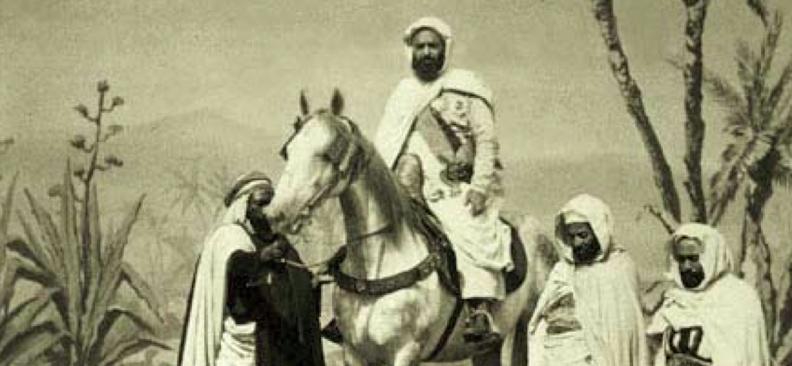On September 12, 2018, Wesley Theological Seminary in Washington DC hosted a conference entitled "Rediscovering Emir Abd el-Kader: A Teacher for the World". The conference traced the history of Emir Abd el-Kader or Abdelkader El Djezairi, who was an Algerian religious and military leader who led a struggle against the French colonial invasion in the mid-19th century (1830-1847). The conference highlighted his consistent regard for what would now be called human rights, especially towards his Christian opponents, and drew widespread admiration. His crucial intervention to save the Christian community of Damascus from a massacre in 1860 brought him honors and awards from around the world.
The event brought together scholars, experts, and attendees from the Algerian embassy in Washington to review the life of Abdelkader El Djezairi as Commander of the Faithful who was one of the least known but most influential Muslim leaders of the 19th century due to his efforts to unite the country against foreign invaders. The conference examined different ways that impacted his education, spiritual and religious life and looked at the importance of the cultural and religious manifestations of Islam in educating the new generation about the true values of Islam. The conference also explored the role of Jihad in Abd el-Kader's life and the role of knowledge in shaping his deep spiritual convictions and Islamic beliefs as a foundation of his character.
Covering fourteen topics such as "Abd el-Kader and Salafism", "Abd el-Kader as Role Model at home and abroad", "Mobilizing the unknown Abd el-Kaders", the speakers discussed Abd el-Kader's mission to mitigate fear and ignorance of Islam among Muslims and non-Muslims. This mission required exposing people to Islam's rich history through people and traditions within Islam that once made it a great culture of openness, learning, and relative tolerance.
The conference began with opening remarks by representatives of The Abdelkader Education Project (AEP) which organized the event. Opening the discussion, Kathy Garms, Executive Director of Abdelkader Education Project, highlighted the importance of The Abdelkader Education Project, and its campaign to revive the memory of this Bedouin scholar, warrior and a humanitarian hero who emerged from struggles with France.
Out of the eight topics that were discussed during the conference, John Kiser, author and co-founder, Abdelkader Education Project answered the crucial question concerning why Abdelkader matters today. Kiser talked about his book "Commander of the Faithful: The Life and Times of Emir Abd el-Kader" and the necessity of finding a platform for understanding and appreciating the rich diversity of God's creation while gathering people of all faiths and cultures to find a common ground through this hero and his journey.
Daisy Khan, Executive Director of WISE in her presentation "Abdelkader as Role Model at Home and Abroad" addressed at least three elements of Abdelkader's character that makes him such a worthy heroic role model in today’s diverse and interconnected world: He was also “local” and “universal” at the same time, she said. He was deeply and authentically Muslim. Daisy traced the origin of the story of Abdelkader's statue in the headquarters of the International Committee of the Red Cross in Geneva, Switzerland when she confirmed that Henry Dunant, the Swiss Calvinist and humanitarian activist who founded the Red Cross, learned of Emir Abdelkader’s chivalrous conduct on and off the battlefield during his visit to Algeria. Dunant counted him as one of the inspirational sources of the Geneva Code of Conduct. The Emir, he learned, initiated the first prisoner exchanges with the French, and forbade the decapitation of French soldiers who were wounded or surrendered on the battlefield. He also insisted on respectful treatment of French prisoners, had their wounds treated, and gave them the same rations as those given to his own men.
Daisy finished her presentation by emphasizing that Emir Abd el-Kader even enforced other rules of Islamic warfare: no mutilation of the dead, no shooting in the face, no destroying nature, no killing of women, children, old men, or animals (except to eat). Destroying sacred sites and shooting priests and monks was also forbidden.
After a full day of interactive dialogue and discussion, the experts agreed on the importance of cultivating Abd el-Kader's model and his qualities in the new generation of youth and leaders while rejecting wrong interpretation or extremist views of Islam. Emir Abd el-Kader, who Algerians sometimes call their George Washington, was a heroic man whom people of all cultures and religious faiths can look to for inspiration and to discover the right path of Islam based on knowledge and mutual respect in dealing with one another.










Comments powered by CComment